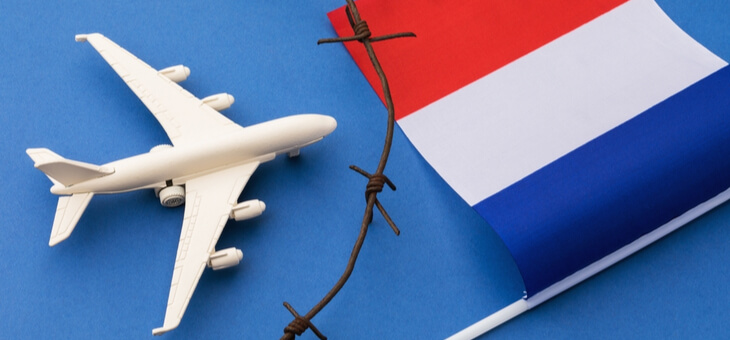The French government has banned short-haul domestic flights that would take less than two hours 30 minutes to complete by bus or train.
The new rule, expected to come into effect later this month, will only affect routes that have another form of transport connecting them.
For example, flights from Paris to cities such as Bordeaux, Nantes, and Lyon will no longer operate, as substantial rail and bus options exist.
This ban comes in an attempt to reduce the country’s carbon emissions as part of France’s larger plan to go carbon neutral.
It was put to the vote in 2021 after the French government bailed out Air France due to losses resulting from the pandemic. One condition of this bailout was that Air France must become more environmentally conscious.
Read: Things flight attendants notice about you as soon as you board
The country’s minister for the economy at the time, Bruno Le Maire, told local radio that Air France should become “the most environmentally respectful airline” and that the pandemic gave an opportunity to “reinvent our model of economic development to ensure it is more respectful of the environment.”
“It is obvious that today a number of domestic routes are no longer justified,” Mr Le Maire said. “When you can travel by train in less than two-and-a-half hours, there is no justification for taking a plane.”
According to The Guardian, about 12 per cent of France’s domestic flights will be affected by the ban. It’s estimated that carbon emissions for each passenger on a domestic flight are 70 per cent higher than long haul routes, which is six times higher than if the trip was taken via rail.
Could other countries implement the same ban?
Other EU countries are enforcing similar rules to reduce carbon emissions created by domestic travel.
Austrian Airlines was also bailed out in 2020 due to losses from COVID-19. The stipulation in their bailout is that the airline had to eliminate domestic flights where alternative train journeys under three hours were available. This will affect the carrier’s route between Vienna and Salzburg. It is estimated that 80 per cent of short-haul trips in Austria can be replaced by rail travel due to its vast rail network, ÖBB.
Read: Visit the 2022 European Capitals of Culture
These bans seem to have public support from EU citizens. A 2020 survey found that 62 per cent of Europeans support an EU-wide ban on short-haul flights.
Much of Europe is well-connected by the comprehensive rail network, a traveller can get from the westernmost point of the Iberian Peninsula to the Baltics by train relatively efficiently. And companies such as Eurail make it easy for travellers to hop on and off intercity trains.
If you enjoy our content, don’t keep it to yourself. Share our free eNews with your friends and encourage them to sign up.

